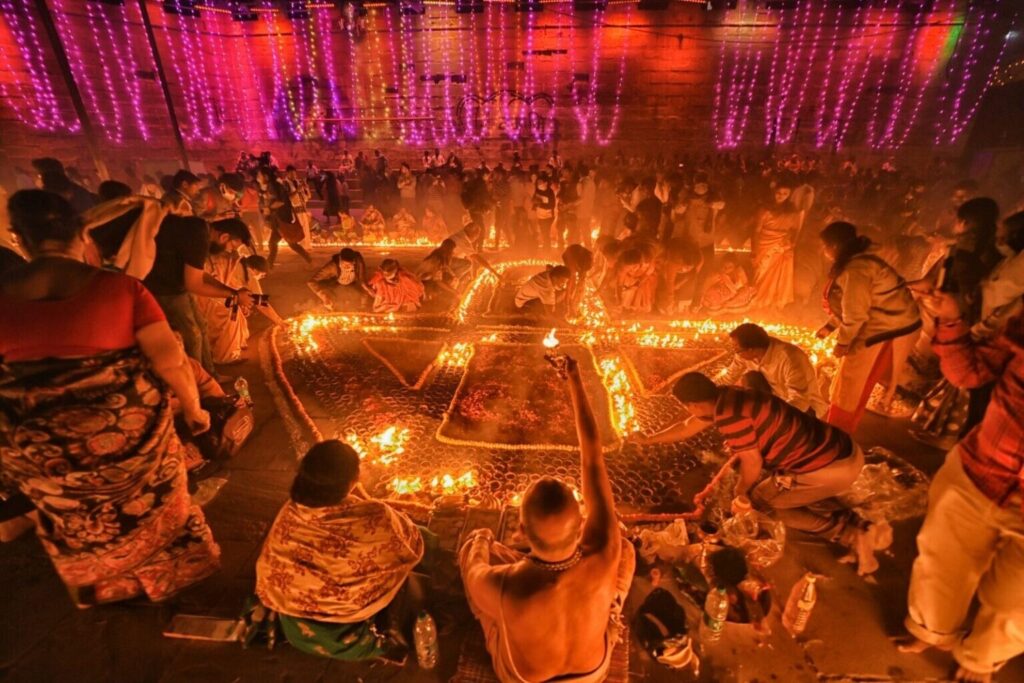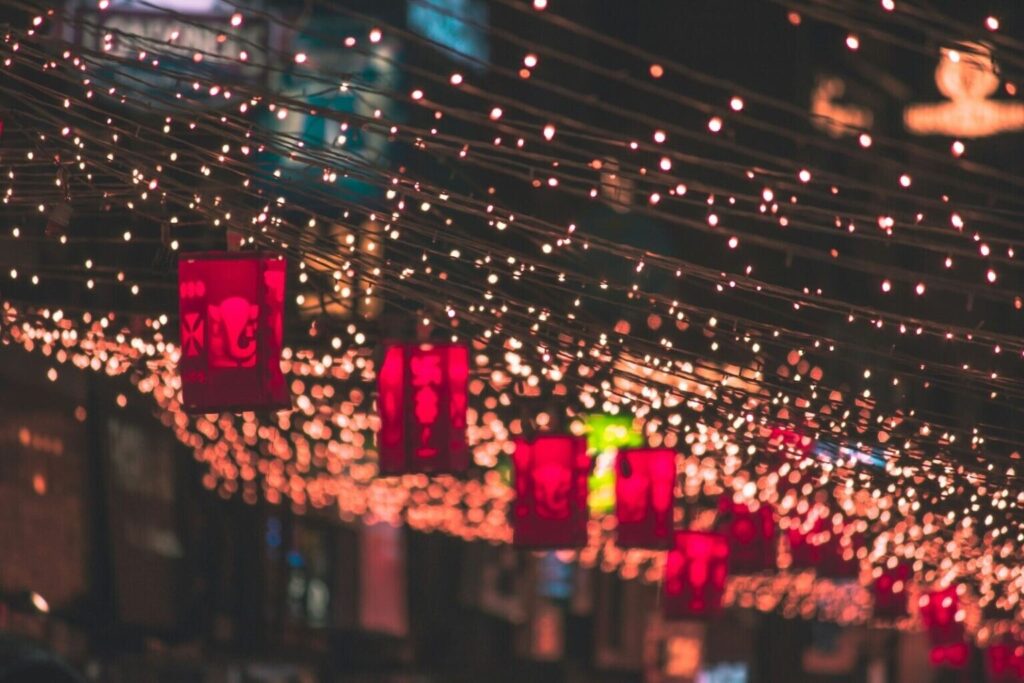India has many popular festivals that fill the country with visitors, light, and color. Among them is Holi, which we talked about some time ago in another blog post.
Today, we want to tell you about another iconic event you can enjoy if you embark on the next volunteer experience that Cooperating Volunteers has prepared. It’s a trip from October 31st to November 14th, 2024, where you will support Mr. Gopal’s school by improving its facilities and addressing its needs, experience a real Indian wedding, and participate in the celebration of the majestic Diwali.

Diwali, also known as the ‘Festival of Lights,’ is a celebration that spans across India and even in other countries with Hindu communities, such as Nepal, Malaysia, Sri Lanka, Singapore, and parts of the Caribbean. While it’s closely associated with Hinduism, this festival is also celebrated in other religions like Jainism, Sikhism, and Buddhism.
In Hinduism, Diwali commemorates different events depending on the region of India. In the north, it celebrates the return of the god Rama, his wife Sita, and his brother Lakshmana to the city of Ayodhya after 14 years of exile and after defeating the demon Ravana. For Hindus in other parts of India, Diwali marks the victory of the god Krishna over the demon Narakasura.
In Jainism, Diwali marks the day Mahavira, the 24th and last tirthankara (saint), achieved nirvana, or spiritual liberation, in 527 BCE.
In Sikhism, it celebrates the day Guru Hargobind Ji, the sixth Sikh Guru, was released from prison along with 52 princes in 1619.
HOW LONG DOES DIWALI LAST?
Diwali is filled with celebrations and rituals that take place over five days, each dedicated to a specific purpose.
The first day, called ‘Dhanteras,’ marks the beginning of the festival, worshiping Dhanvantari, the god of medicine and health. On this day, people clean their homes and buy new utensils. He is considered the god of Ayurveda, who imparted the wisdom of Ayurveda for the benefit of humanity and to help relieve the suffering caused by disease.
The second day, called Naraka Chaturdashi or Choti Diwali, marks the defeat of Narakasura by Krishna. It’s a day for purification through oil baths, applying sandalwood paste, and lighting the first diyas (lamps). It is special as it symbolizes the victory of good over evil.
According to legend, Narakasura was a demon king who wreaked havoc on earth and the heavens, capturing thousands of women. Krishna, along with his wife Satyabhama, defeated him, freeing his prisoners and bringing relief to gods and humans. For this reason, Naraka Chaturdashi symbolizes the liberation from internal and external demons and the eradication of darkness.
The third day, called Lakshmi Puja, is the main day of Diwali, where the goddess Lakshmi, goddess of wealth and prosperity, is worshiped, and in some regions, the god Ganesha, god of wisdom and remover of obstacles. Homes and businesses are decorated with lights, flowers, and rangolis (art made on the ground with colored powders), and diyas are lit everywhere.
The fourth day, called Govardhan Puja or Annakut, celebrates Krishna’s victory when he lifted the Govardhan hill to protect villagers from a storm. Devotees prepare mountains of food as offerings. It also marks the beginning of the new year in some communities, especially among merchants.
The fifth and final day, called Bhai Dooj, is dedicated to brothers and sisters, where sisters pray for the long life of their brothers, who in return give them gifts as a sign of affection and protection and apply tilak (a symbolic mark) on their foreheads.

WHAT ELEMENTS ARE NEVER MISSING?
As we mentioned earlier, this is one of the most colorful and popular festivals in India. There are some elements that are always present in homes, temples, and on the streets. To be considered the ‘Festival of Lights,’ these are essential.
The most popular are the ‘diyas,’ small oil lamps that decorate the entire country, along with electric lights and candles. The lamps symbolize the removal of darkness, which is associated with ignorance and evil, and bringing in light, which is associated with knowledge and goodness.
Fireworks are also a fundamental part of the celebration as they symbolize the joy of victory and drive away evil spirits.
At the entrance of homes, ‘rangolis’ are created, which we mentioned earlier. These are colorful patterns made of powder, flowers, or rice and welcome the goddess Lakshmi and guests.
And without a doubt, another key element is sweets and gifts. It is very common to share homemade sweets like ‘laddus’ (made from flour, sugar, and ingredients like nuts, coconut, fruits, mixed into a ball shape) or ‘barfis’ (condensed milk, sugar, nuts, grated coconut, all mixed and cut into squares or diamonds). This is a way to welcome friends, family, and neighbors, symbolizing prosperity and happiness.
Diwali not only has deep religious significance but also marks a time of social and financial renewal. In many parts of India, it marks the start of a new financial year, especially for merchants and business owners, who open new accounts and books during the auspicious occasion of Lakshmi Puja.
It’s also a time to strengthen family and community ties. Families gather, friends visit each other, and it’s a period of reconciliation and peace. The streets and markets come to life with cultural festivals, dances, music, and fairs that bring together people of all ages.
Diwali transcends geographical boundaries and is celebrated with equal enthusiasm by the Indian diaspora worldwide. Although traditions may vary, the central message of the victory of good over evil, light over darkness, and unity and prosperity remains at the heart of this festival.

If you don’t want to miss out on this joyous celebration, you can request information about the upcoming trip.
We guarantee that this cultural immersion will make your volunteer experience an unforgettable journey.




